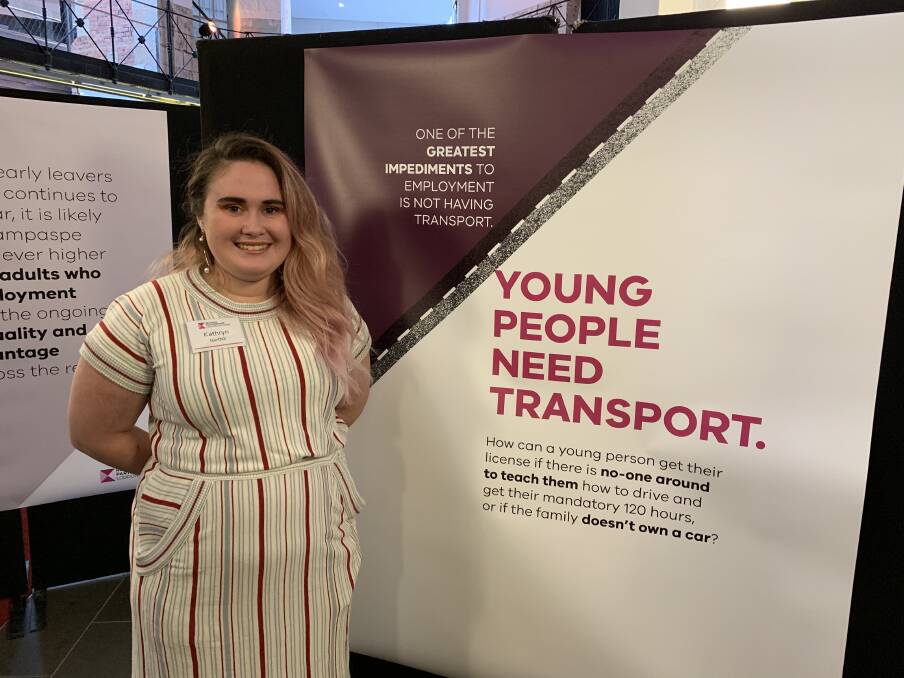
Government ministers and industry professionals have heard from young people in Bendigo about how to tackle youth unemployment in the region.
Subscribe now for unlimited access.
$0/
(min cost $0)
or signup to continue reading
The Loddon Campaspe Regional Partnership held a forum in Bendigo on Thursday night, where 80 young people led discussions on the barriers to employment and what the solutions could look like.
The Bendigo region has been identified as a youth unemployment 'hotspot', with 18.3 per cent of people aged 15 - 24 out of work in December 2018.
The region - which included Heathcote, Castlemaine, Boort and Wedderburn - ranked worst in Victoria and was among the top five youth unemployment hotspots in Australia.
"Kids are leaving school early and not finishing year 12, losing their pathways, and not given an opportunity to identify their passions," Victorian Minister for Regional Development Jaclyn Symes said.
"Not every kid has an idea of what jobs are out there or what opportunities are out there. So it's really about putting all of the pieces together."
A committee of Bendigo leaders identified improving the city's year 12 or equivalent educational attainment rate as a priority for economic development.
About 81 per cent of Greater Bendigo residents between the ages of 20 - 24 have completed year 12 or equivalent. The state average is 86.5 per cent.
Data collated from the Australian Bureau of Statistics showed for people aged 25 - 34, those who didn't finish high school had an unemployment rate of 13.5 per cent.
That figure dropped to 7.8 per cent for those who completed year 12.
"Keeping kids in school is the best way to ensure that they have a bright future," Ms Symes said. "We're here to hear from the community - particularly young people.
"There are some very fierce advocates here that want a better outcome for their fellow peers. We as a government are here to listen."
One of those fierce advocates is City of Greater Bendigo Youth Mayor Khayshie Tilak Ramesh.
She said it was great the forum was focusing on youth-driven solutions.
"It's particularly important just because you have so many different disciplines and so many different arms and legs of the community that are coming together for a common cause," she said.
"That's really exciting. So I think it's a good opportunity to explore some solutions that have a lot of different moving components and get that wide stakeholder consultation."

Ms Tilak Ramesh, who is also a Victorian Multicultural Youth Commissioner, said youth unemployment was a multifaceted issue that couldn't be solved easily.
"I think what is really interesting is looking at the barriers layered on top of each other," she said.
"So it's not just transport - it's transport layered with education, layered with lack of opportunity.
"So when you put them all together it just creates this massive combination of issues and that's what causes the problem.
"So when you look at jobs that require a licence, for example, where are they going to go if they don't have someone to take them driving?
"Where are they going to get the 120 hours? Could they pay for an instructor? Well no, not if they don't have a job. So they're immediately barred. There are a lot of things like that."
Fellow Greater Bendigo youth councillor Kathryn Northill also identified transport as a key issue.
"I came from a regional area and I could only catch two trains a day to get to school," she said. "So I was having 12-hour days just to go to school.
"But from there, it's this lack of support once you finish school. Once you're through the education system, even if you leave, you're thrown under the bus and you have no support and no mechanisms of what to do next.
"Finishing year 12 and getting a VCE certificate is only so much when you're trying to go for a job."
Ms Tilak Ramesh said many young people were also falling through the cracks of the education system.
"We're losing kids during educational transitions," she said. "When you're looking at years 10 to 11, that's a big one and when you're looking to year 12 onward, it's really hard.
"We have some data on where these kids are going but there are also kids that are lost and that's what we're worried about.
"We have no idea where they are. They've dropped off the education scale somewhere and it's about looking at what we can do to keep these kids involved in the community and keep them engaged."
Ms Northill said there needed to be more of a regional and rural focus in government.
"I think what needs to happen next is that there needs to be a plea for government policy that actually affects our region," she said.
"Too often we have policy made that, while yes it's fantastic that somebody's doing something, it doesn't affect us because we're regional and rural communities that maybe only have 3000 people.
"It's still young people not having a job or place to go or a community, so there needs to be more of a regional and rural focus.
"People who are making the policy need to actually understand what it's like to live here. Come here, see it, experience it, and know the struggles that we go through."
Have you signed up to the Bendigo Advertiser's daily newsletter and breaking news emails? You can register below and make sure you are up to date with everything that's happening in central Victoria.


